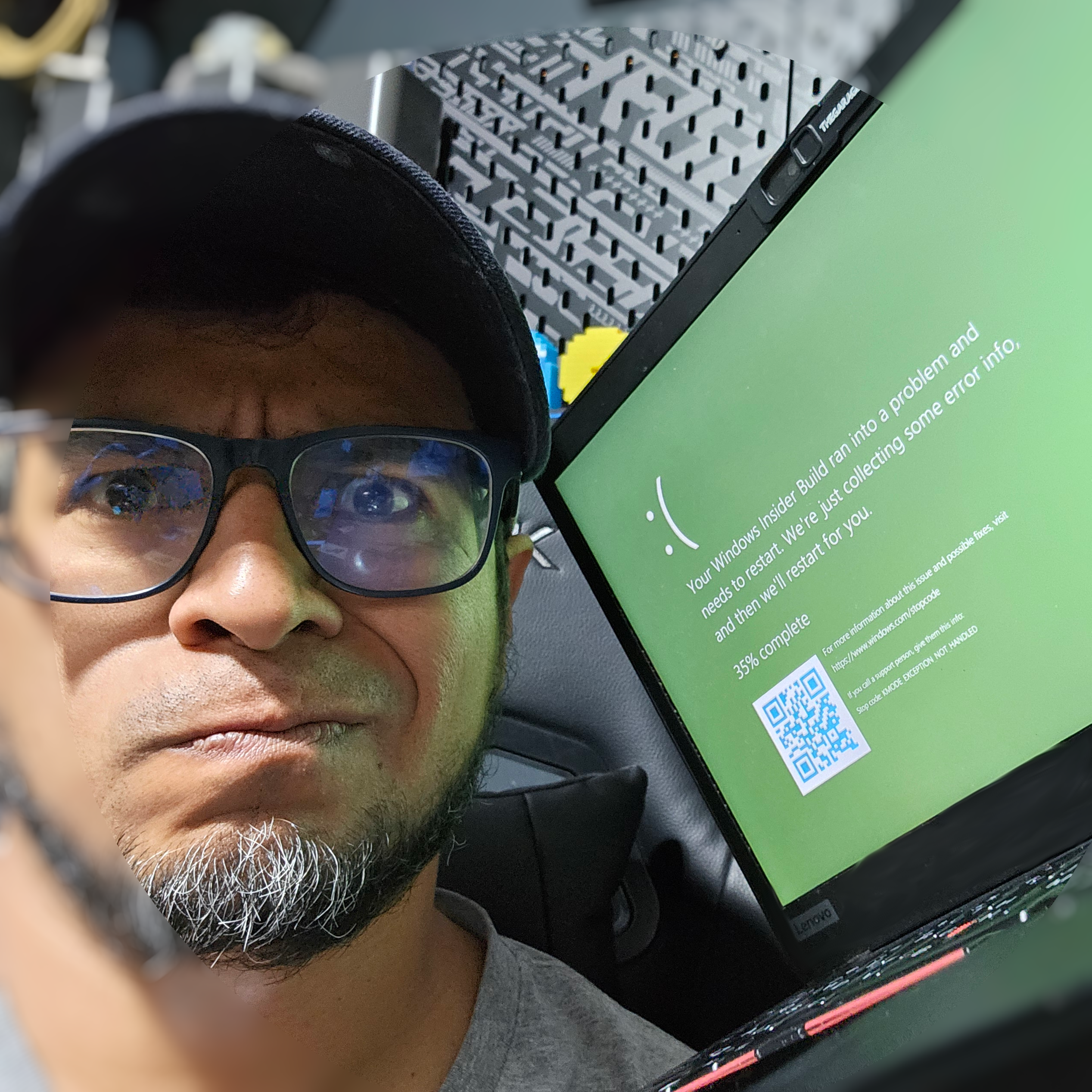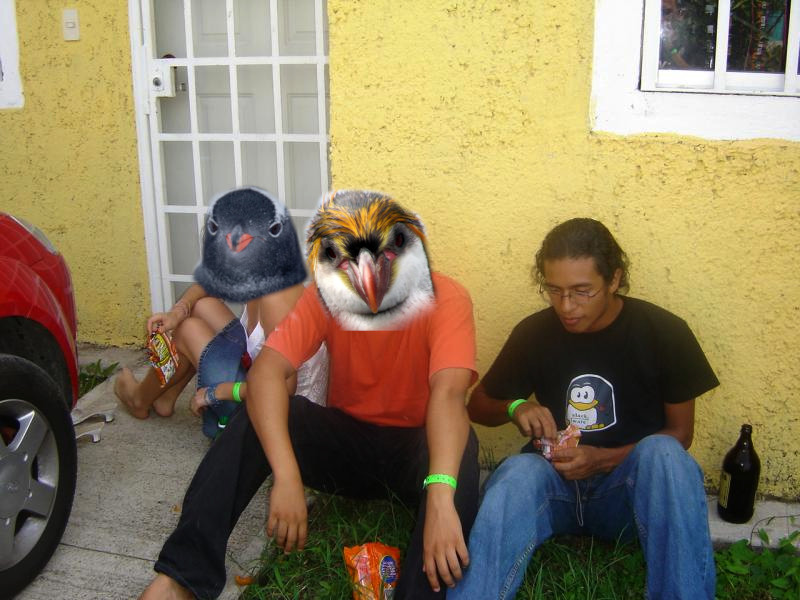
This was me over 15 years ago, enjoying lunch with a Caguama-sized beer in front of my parents’ house in Puerto Vallarta, eagerly awaiting the start of the Free Software Festival. It was an incredible symposium, featuring prominent figures like maddog and Richard Stallman giving keynote speeches. The Mexican open-source community was tightly-knit; everyone knew each other. At that time, I had already given some local talks and organized events through local Linux User Groups. It was a time of rebellion and idealism, and in my world, Microsoft was often playfully referred to as “Micro$oft,” emphasizing greed and capitalism. In my first job search, I specifically sought out companies that embraced open-source software. To me, back then, developing on Windows was nothing short of repulsive.
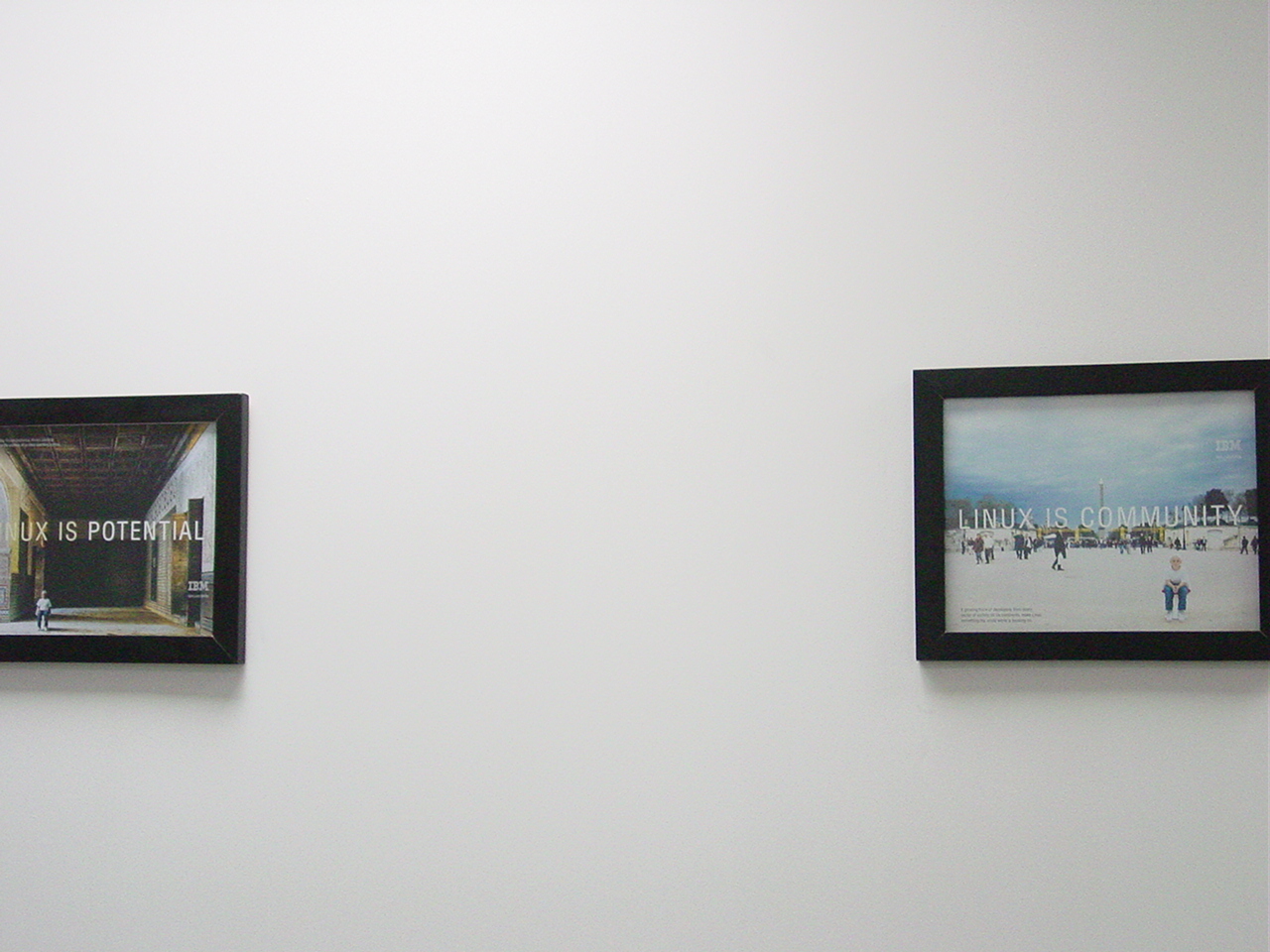 A couple of posters in my old office.
A couple of posters in my old office.
Fast forward 15 years, and I found myself at Building 9 in Redmond, WA, drenched from an unexpected rain shower, nervously navigating an intense interview with some of the most extraordinary engineers I’d ever met. I didn’t tell anyone about this venture, not even my parents or sibilings. When I eventually accepted the offer and joined Microsoft, it took me a couple of days to share the news with my closest circle. I wasn’t ashamed; I simply wanted to savor the moment and gather strength to face the inevitable teasing.
Before joining Microsoft, I underwent two interview cycles and prepared as thoroughly as my limited time allowed. I familiarized myself with the most common non-technical questions, and the most frequently asked one was: “Why Microsoft?”
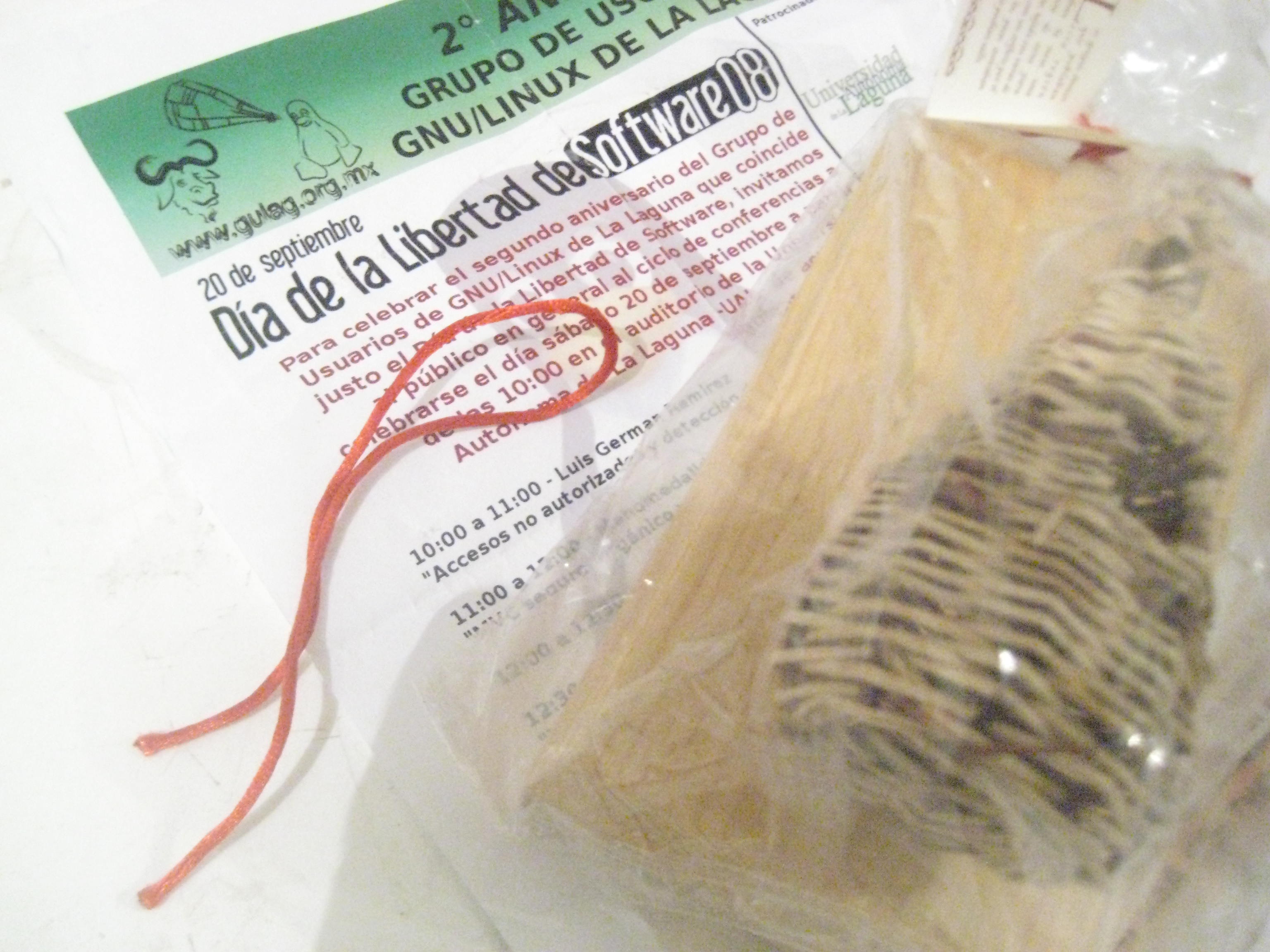 An old gift and poster from a talk I did in Torreon, Coahuila, Mexico
An old gift and poster from a talk I did in Torreon, Coahuila, Mexico
Indeed, “Why Microsoft?” Why did someone who had spent years actively countering the FUD strategy (Fear, Uncertainty, and Doubt), persuading friends to ditch Windows in favor of Linux, challenging decisions like the Imaging Cup in college, and resorting to Mono.net when C# was a requirement (and convincing others to use GTK+ over Windows Forms when necessary) want to join the very company behind it all? You may think it is the money, but I was fortunate enough to have a few options before joining.
My response was simple: Resilience. Having spent four years at IBM, I witnessed a giant old corporation struggling to stay relevant. I admired that, despite all the setbacks (Windows Phone, the Internet Explorer era), Microsoft was still there, reinventing itself. I respected Satya’s “hit-refresh” approach and its departure from the comfort zone.
I’m grateful I accepted that offer. I relish working on cutting-edge projects, traveling to fascinating places, encountering exceptional and talented individuals, and contributing to the open-source community. I’m delighted to see that Microsoft has transformed into a different company, one of the world’s best places to work. I’m in awe of its diversity and its commitment to inclusivity. Of course, it’s not perfect, with some pockets still clinging to old habits, and a long road ahead to true inclusivity. Mistakes happen, but I genuinely believe that most are unintentional, or at least not malevolent. It feels as though we’ve embraced the old Google motto of “don’t be evil.” Controversial decisions still arise, as they do in any large corporation, but the internal support for addressing them is robust.
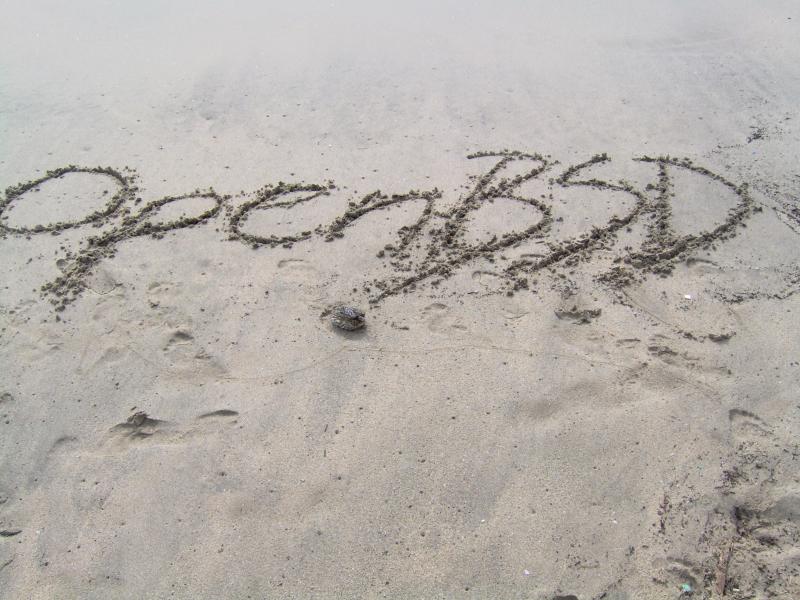
If I could hop into a time machine and meet my younger self from my 20s (the one who when saw a pufferfish in the beach the first though was about OpenBSD), I doubt I could have convinced that idealistic version of me that I’d be writing these words today. But here I am, stonrgly believing that I was not the one who changed most, but Microsoft, humbled by the journey and the growth, grateful for the opportunities Microsoft has provided, and inspired to continue contributing to a tech world that’s evolving in ways I could never have imagined back then.
